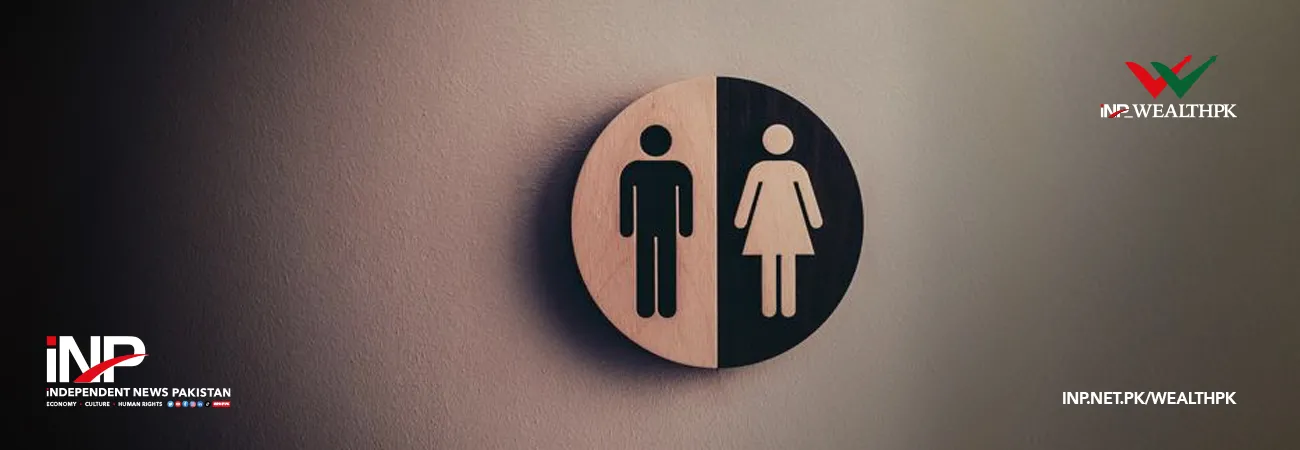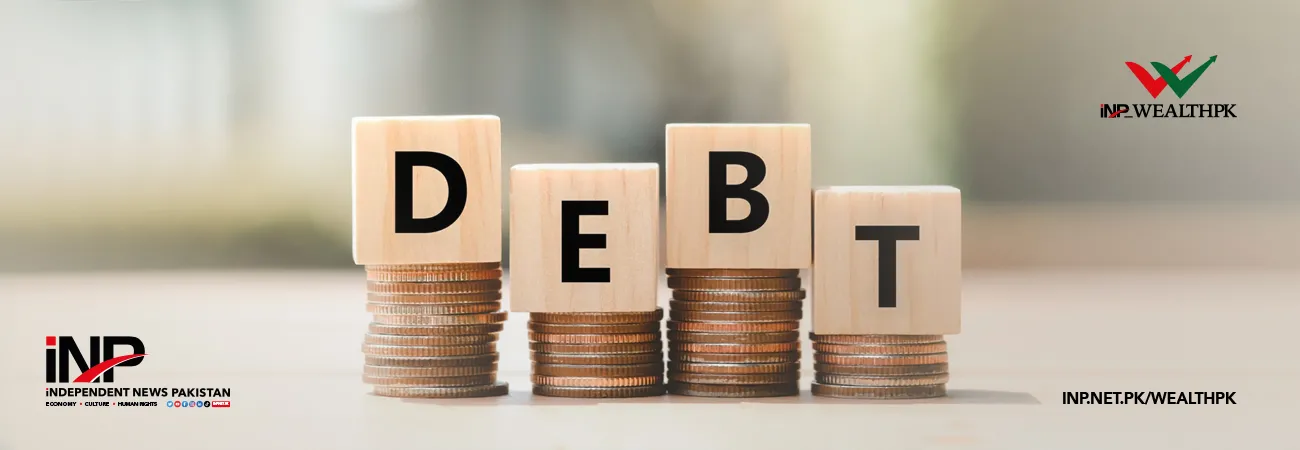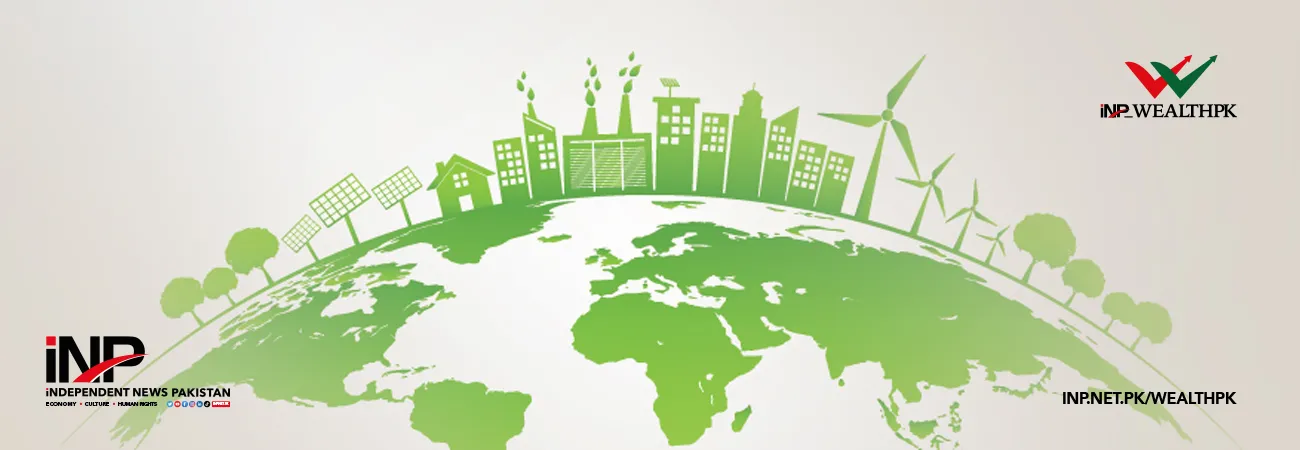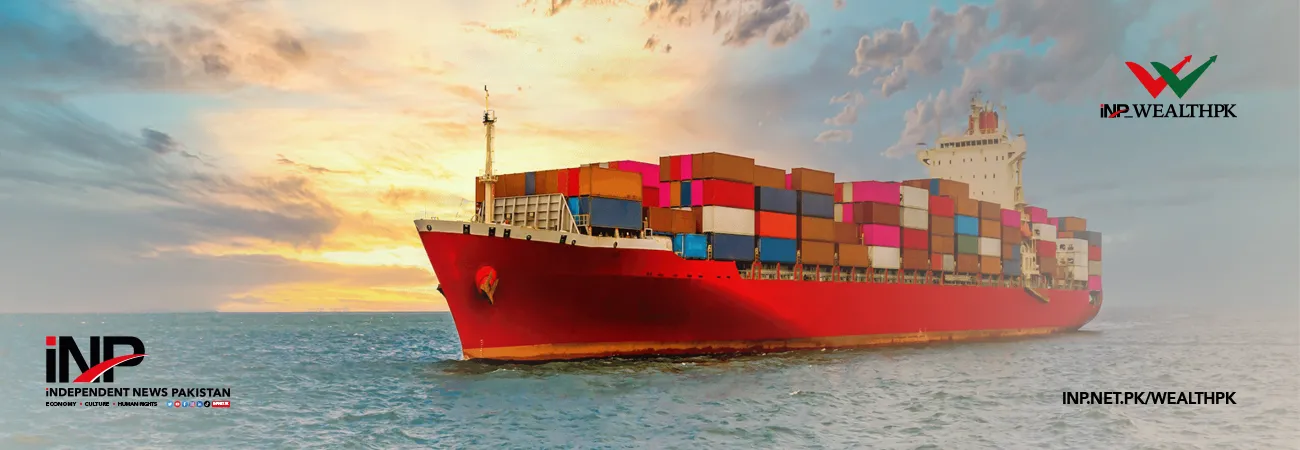INP-WealthPk
Ayesha Mudassar
Accelerating the process of gender parity will benefit not only women but alsothe economy and society at large. Thisapproach will foster innovation, revive growth, and increase resilience, AmbreenIftikhar,Additional Secretary oftheBoard of Investment (BOI),toldWealthPK. According to the World Economic Forum’s (WEF) Global Gender Gap Report 2023, Pakistan ranks 142 out of 146 countries with 57.5% gender parity – the highest since 2006.
Commenting on the 2023 edition of the report, she saida collective and coordinated action by the private and public sector leaders proved instrumental in accelerating progress on gender parity and igniting renewed growth. The Pakistan Vision 2025, which aligns with the United Nations Sustainable Development Cooperation Framework (UNSDCF) 2023-2027 for Pakistan, also prioritizes gender equality. The annual report ranks Pakistan 138/146 for educational attainment, 143/146 for economic participation and opportunity, 132/146 for health
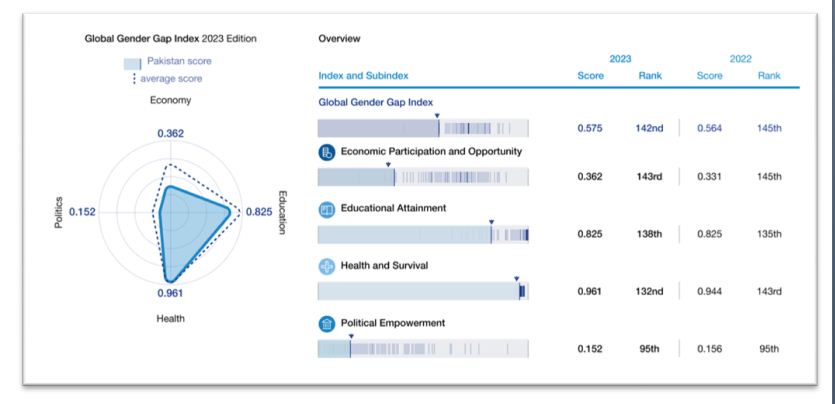
and survival, and 95/146 for political empowerment. The country has improved by 5.1 percentage points on "economic participation and opportunities" sub-index in the last decade to attain 36.2% parity, the report pointed out. There is significant progress across all indicators on the economic participation and opportunity sub-index, particularly in the share of women technical workers and theattainment of parity in wage equality for similar work. Dr. Mariam Mohsin, Assistant Professor at the Pakistan Institute of Development Economics (PIDE),told WealthPKthatthe country’s current economic situation demands active participation of women.
“Enhancing female participation in the workforce, encouraging them to initiate start-ups, and using innovative ideas will surely help in resolving the persistent economic problems plaguing the country,” she added. Despite relatively high disparities, parity in literacy rate and enrolment in secondary and tertiary education are steadily improving, leading to 82.5% parity on the Educational Attainment sub-index. On Health and Survival, Pakistan secures parity in sex ratio at birth, boosting sub-index parity by 1.7 percentage points since 2022.
Like most other countries, Pakistan's widest gender gap is in Political Empowerment (15.2%). It has had a female head of state for 4.7 years of the last 50 years, and one-tenth of the ministers as well as one-fifth of parliamentarians are women. Globally, the report found that the overall gender gap has closed by 0.3 percentage points compared with last year’s edition.
However, in the report, Pakistan has been placed near the bottom of both the regional and global
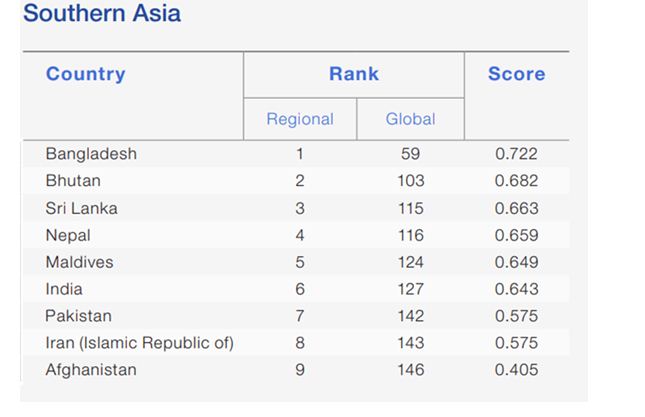
The Global Gender Gap Index rankings by region, 2023 rankings. Only Iran, Algeria, Chad, and Afghanistan are below Pakistan. Gender equality is a valuable instrument for developing nations like Pakistan to uplift millions of people out of poverty, reduce dependency burdens, lower mortality rates, and foster sustainable development.
Credit: INP-WealthPk



